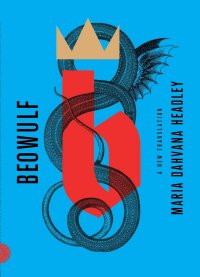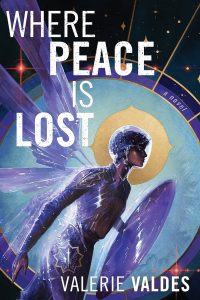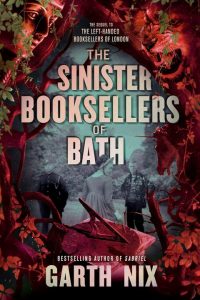Paula Guran Reviews Beowulf: A New Translation by Maria Dahvana Headley
 Beowulf: A New Translation, Maria Dahvana Headley (MCD x FSG Originals 978-0-374110-031, $15.00, 176pp, tp) August 2020.
Beowulf: A New Translation, Maria Dahvana Headley (MCD x FSG Originals 978-0-374110-031, $15.00, 176pp, tp) August 2020.
According to Encyclopædia Britannica, Beowulf is a “heroic poem, the highest achievement of Old English literature and the earliest European vernacular epic.” True, but it is also a work of dark fantasy. Without its monsters, there wouldn’t be much to the story.
Maria Dahvana Headley has already retold the poem through her wonderful novel The Mere Wife. With Beowulf: A New Translation she renders the epic into a readable, relevant, and vibrant text for the 21st century. She immediately signals her approach by her translation of hwaet, the poem’s famous opening word. Hwaet has been deciphered in numerous ways, and Headley used many of them (listen, hark, behold, lo, sing, etc.) as section headings in her novel. For Beowulf: A New Translation, she selects “Bro!” to get things going. And go they do.
Grendel is described as a “woe-walker, / unlucky, fucked by Fate,” for instance. But use of contemporary language doesn’t diminish the poetry:
When golden teeth tasted the sky,
Grendel’s silent skill was seen. His kills –
grim crimson spilt on banquet boards.
The story is more vivid than ever. Beowolf, an outsider who sees himself “as God’s gift,” defeats Grendel, but not before the monster snacks on some sleeping warriors:
snatching a sleeper and sucking him bone-dry
staining the pale planks red, grunting, gobbling,
gnawing him limb from limb, here a throat,
here a head, fingers, feet – dead.
Beowulf then goes to battle Grendel’s mother. Despite other dire monsters and ill omens, “Beowulf gave zero shits.” The monster is impervious to his fancy heirloom sword. He throws it away and knows what he must do. After all, “if you want to win, you have to forget you are ready to die.”
The Geat was ready to rumble, pissed now.
He roared a challenged, warmed for war with
Grendel’s mother…
So it goes, until he dies after defeating a final monstrous foe. His grieving men celebrate the hero after his death:
He rode hard! He stayed thirsty! He was the man!
He was the man.
And Maria Dahvana Headley is “the woman.” She’s made an ancient tale fresh, fun, and even more meaningful with this magnificent translation.
Paula Guran has edited more than 40 science fiction, fantasy, and horror anthologies and more than 50 novels and collections featuring the same. She’s reviewed and written articles for dozens of publications. She lives in Akron, Ohio, near enough to her grandchildren to frequently be indulgent.
This review and more like it in the September 2020 issue of Locus.
 While you are here, please take a moment to support Locus with a one-time or recurring donation. We rely on reader donations to keep the magazine and site going, and would like to keep the site paywall free, but WE NEED YOUR FINANCIAL SUPPORT to continue quality coverage of the science fiction and fantasy field.
While you are here, please take a moment to support Locus with a one-time or recurring donation. We rely on reader donations to keep the magazine and site going, and would like to keep the site paywall free, but WE NEED YOUR FINANCIAL SUPPORT to continue quality coverage of the science fiction and fantasy field.
©Locus Magazine. Copyrighted material may not be republished without permission of LSFF.







